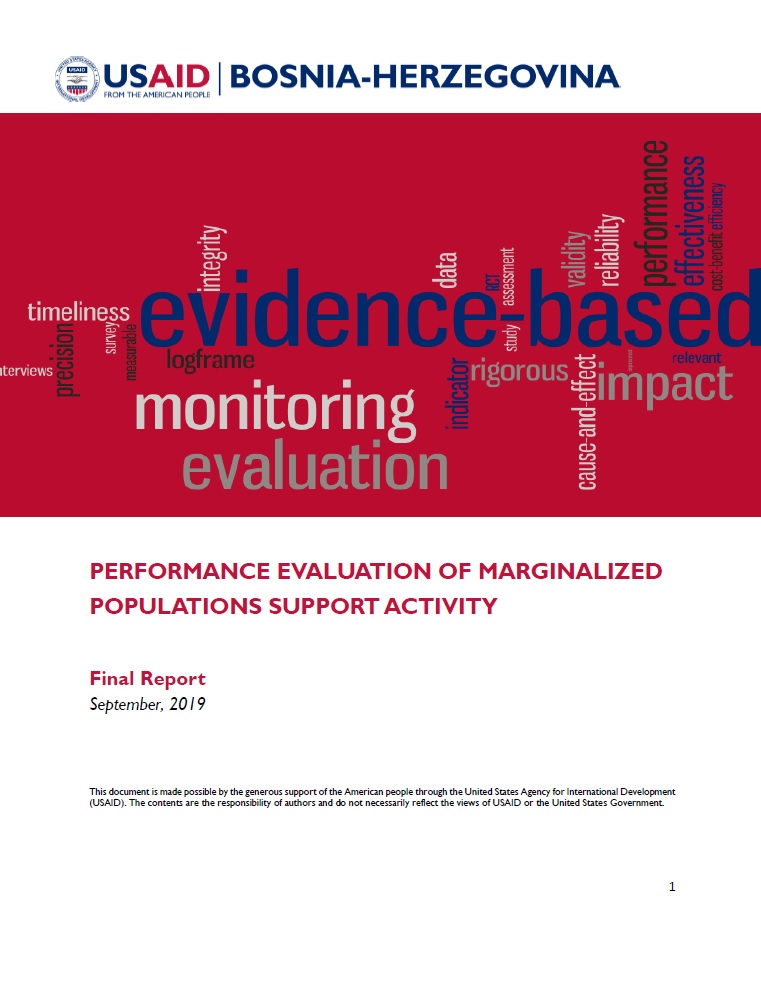
performance evaluation - marginalized populations support activity
|
The Marginalized Populations Support Activity (PPMG) is a $4.99 million Activity implemented by the Institute for the Youth Development KULT with a period of performance of February 22, 2015 through in February 2022. The PPMG’s purpose is to improve representation of marginalized populations in political and civic issues by providing financial and capacity building assistance to local organizations supporting marginalized populations. The Activity defines marginalized populations as youth, women, Roma, persons with disabilities (PWDs), and lesbian/gay/bisexual/transgender/intersex (LGBTI) individuals. This performance evaluation addresses three evaluation questions: 1. PPMG’s progress toward targets; 2. PPMG’s achievements in terms of capacity building of local organizations, 3. PPMG’s results in terms of improving representation of local organizations and marginalized populations in political and civic issues. The evaluation team employed a mixed-methods approach. The team combined information obtained through a review of the Activity documentation; from 38 key informant interviews; four focus groups; and online surveys of PPMG’s grantees, trainees, and government representatives. The evaluation indicates that the PPMG may not reach all its contractual targets and that there are areas for improvements when it comes to monitoring of the Activity’s progress. There are indications that the grantee organizations improved capacities with the PPMG’s assistance, but there is no evidence that similar results were achieved among non-grantees or government representatives. The service centers providing services for persons with disabilities and their families showed the greatest improvements in terms of capacity building and representation of marginalized groups in political and civic issues. These organizations have been intensively and continuously supported by the Activity, indicating that longer-term and extensive support is needed to achieve such results. The PPMG supported marginalized women through the Women Entrepreneurship Program. Although in some cases the Program improved the financial situation of women, it did not address women’s perceptions about gender roles in society. Representatives of local organizations find that connecting the organizations focusing on similar issues has been an important effect of the program. Moreover, owing to the Program, several local organizations built capacity and became mentors to smaller organizations, assisting them in building their organizational capacities. Local organizations made limited contributions in terms of policy changes related to marginalized populations, public perception, and visibility of these groups. However, most stakeholders noted that policy changes and changes in public perception are long-term processes. |
|
The main recommendations for potential new interventions targeting marginalized groups include changes in the following areas: improving the monitoring, evaluation, and learning (MEL) systems; continuing the support to service centers; providing long-term and extensive assistance to local organizations; continuing to build capacities of government officials; building an advocacy platform; provision of technical assistance and awareness raising interventions within the Women Entrepreneurship Program; coordination with other donors. Evaluation methodology, detailed findings and recommendations, as well as data collection instruments used for the evaluation are all provided in the final report available below. click on the image to download file |





